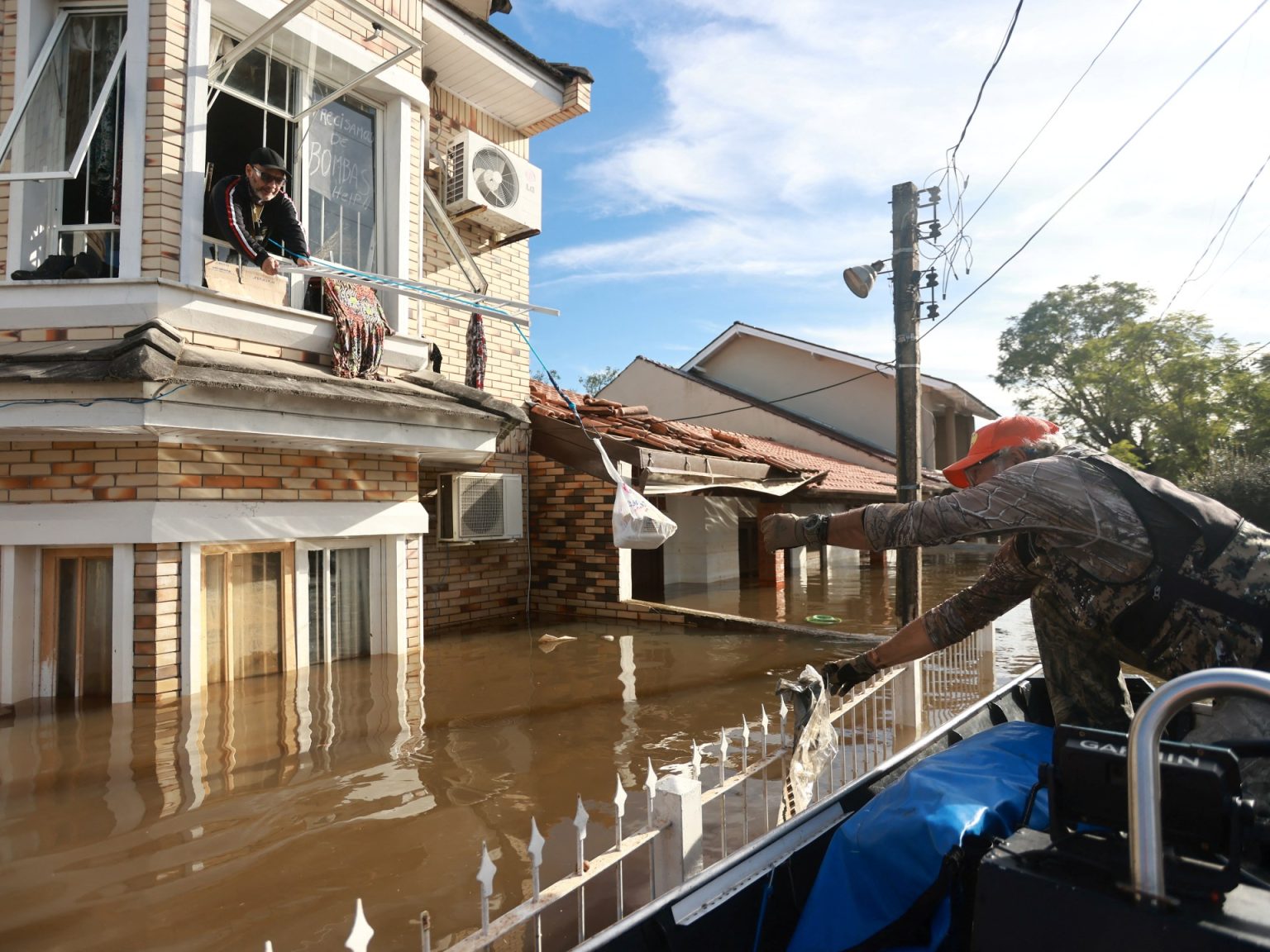The southern region of Brazil has been hit by devastating floods, affecting over 2.3 million people and claiming the lives of 161 individuals. The floods have been described as the worst climate disaster the area has ever seen. However, amidst the tragedy, there is another issue exacerbating the situation – disinformation. False claims have been circulating, accusing the government of blocking aid and medicine shipments, slowing the arrival of supplies, and pulling rescue workers out of the affected areas. This misinformation has had real-world consequences, from impeding recovery efforts to causing food shortages and mistrust.
Fake news has targeted government flood warnings, discouraging volunteers and donations, and spreading rumors about rice shortages. This disinformation has been intentional, aimed at undermining the government and promoting political agendas. Experts have identified far-right influencers and politicians as the main spreaders of false information, creating a climate of chaos and mistrust. The intentional spread of inaccurate materials is part of a coordinated effort to attack and discredit the government at a time when unity and support are needed the most.
President Luiz Inacio Lula da Silva has been a primary target of the disinformation campaign, despite his administration’s efforts to provide relief to flood victims. Lula has visited the affected areas, sent federal workers, and pledged financial aid to help with recovery efforts. However, false information has downplayed these efforts, creating tensions and hindering the work of rescue and reconstruction. The spread of misinformation has diverted attention and resources from the crucial work being done by public servants and volunteers in the affected regions.
The roots of disinformation in Brazil can be traced back to the 2018 presidential election, where far-right supporters of Jair Bolsonaro used social media to spread conspiracy theories and smear political rivals. The phenomenon has continued during Bolsonaro’s presidency, leading to investigations and arrests of individuals involved in disseminating fake news. The current flood-related disinformation campaign is seen as an effort to delegitimize actions taken by the government and undermine political rivals ahead of upcoming elections.
As Brazil prepares for municipal and national elections in the coming years, the disinformation surrounding the flooding is seen as a strategy to influence public opinion and sway votes. The political polarization in the country has fueled the spread of false information, creating a toxic environment that hinders relief efforts and reconstruction. The disinformation campaign is well-organized, targeting vulnerable populations with the purpose of dividing residents along partisan lines. Despite the challenges posed by fake news, efforts are being made to combat misinformation and ensure that accurate information reaches those who need it most.


